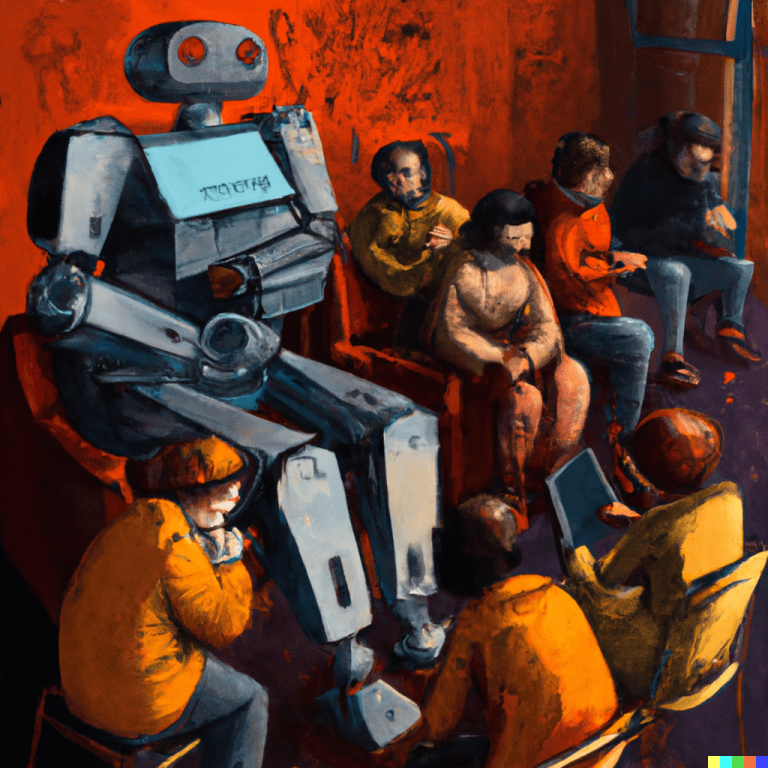“Curiosity: one of the competencies students will need the most in online higher education”
24 October, 2024 Emily Tanner
Emily Tanner
Emily Tannert Patterson has been a Learning Designer with Cambridge Online Education (COE), part of Cambridge University Press & Assessment, since 2020. Patterson works with University of Cambridge academics to design engaging, interactive online courses for the Cambridge Advance Online (CAO) platform, and has designed across a wide range of topics and sectors, including creativity, problem-solving, human-computer interaction, neuroanatomy and sustainability. Outside of CAO, Emily has worked on COE projects ranging from designing in-person workshops with internal university partners to piloting a new partnership with the Cambridge Institute for Sustainability Leadership. Additionally, Emily spoke at the 2024 Cambridge Teaching Forum about using metacognition as an underpinning for creativity education.
The framework of Learning Impact Europe 2024, which the Universitat Oberta de Catalunya (UOC) hosted from9 to 11 October, allowed us to interview Patterson about competencies in online higher education, ethical AI practices in the classroom, assessment and other topics related to the future of teaching and learning.
What competencies do you think students will need the most in online higher education now and in the future?
A few, in no particular order:
- Information literacy. A screen is a deceiving thing – because content can be put online so easily, the focus of that content can change rapidly. Being able to critically evaluate whether and to what degree sources are trustworthy is key.
- Understanding of their own learning needs, being able to self-assess mastery. When you’re operating in a learning space mostly by yourself, you don’t always have the opportunity to notice that you’re not getting hold of the material. So learners need to be more deliberate in not just following the path set out for them, but in adapting that path to best suit how they take in new information and relate it to existing information. I think this is a crucial skill for ALL learners, by the way, but it’s perhaps even more crucial when you’re attempting to learn at a distance,
- Some willingness to socialize, to go out of their way to seek others doing and studying the same thing they are, whether in person or online. Trading ideas with others, seeing how others approach the same problems you’re dealing with – it’s just invaluable, and should not be ignored.
- Finally, curiosity! A thirst for understanding new things. So much of learning can be about achieving the next grade, submitting the next assignment – basically, checking boxes. It’s easy to lose sight of the fact that finding out about new stuff, and learning to do new things, is a lot of fun! Learners should observe and celebrate their own growth, adapt learning to be relevant to their own goals and context, and generally try to stay interested and curious. Not only does it make the process more motivating and enjoyable, it helps the learning stick.
Being able to critically evaluate whether and to what degree sources are trustworthy is key.
What measures will you implement to help students integrate AI ethically into their daily learning tasks and avoid plagiarism?
At Cambridge Advance Online, our audience is professional learners; we’re not delivering credit-bearing courses, so we don’t try to prevent our learners using generative AI or any other form of AI in their learning or their output. Instead we give them some directions about how generative AI can usefully be used to aid (not hinder) their learning, and we also point out the risks of its use. We ask them to declare generative AI use in their outputs, for example, in course project reports, and we have an anti-plagiarism policy that extends to generative AI-based contributions. And of course, we tell learners that they’re ultimately responsible for any content they submit as part of their work on our course, and that includes anything they use or adapt that originates with generative AI.
How will AI affect assessment and what opportunities will it bring to teachers?
Generative AI may help us move beyond strictly recall-based or essay-based evaluation, which is still really prevalent at a lot of levels of education and which often isn’t the best way to evaluate whether a student has gained new skills, and work toward scenario-based, application evaluations, which bear a great deal more similarity to how we all use learnings, skills and knowledge in real life.
Many teachers are showing great inventiveness in harnessing generative AI as part of lots of parts of the learning process – not just instructional design, curriculum, lesson planning, assessment planning, etc., but also having students engage with it in ways which are meaningful to the content they’re learning. That might mean having students critique or verify generative AI output or using it as a starting point for a project, in ‘co-pilot’ mode to increase learning efficiency. I’ve also heard of use cases like having language learners prompt image-generating AI to create a picture, which enhances descriptive vocabulary.
How can AI help students to work on metacognition in online learning?
Metacognition means ‘thinking about thinking’, and really it’s the technique of approaching a problem or issue differently to ensure we can vary our thinking by using different thinking types or thinking skills, and not get stuck constantly reaching for the same solutions or approaches. Examples of thinking types include quantitative, qualitative, divergent, convergent, abstraction, concretization, and so on.
Students don’t necessarily need AI to do this, but some ideas are:
- AI could generate a list of thinking types and explanations of them (with sources – always ask generative AI for its sources!) so that students could have some options handy.
- I have not yet experimented with asking generative AI to analyse a problem using a different ‘thinking’ technique, but it would be interesting to see the output! Learners could then critique or analyse the output to see if the chatbot really did exhibit characteristics of that thinking type, and this would be useful for a learner to observe how to use that thinking type.
In general we need to be aware that generative AI is built on predictive algorithms. It may look like a chatbot can ‘think’ but really, it’s just a formula (a complex, sophisticated formula with a lot of training data) in the background, and we don’t want to hand a chatbot the responsibility of thinking for us.
Generative AI is built on predictive algorithms. It may look like a chatbot can ‘think’ but really, it’s just a formula.
How do you envision the future of education?
I think this is where I’m supposed to paint some sort of Jetsons-esque picture of AI-based individualized learning for every student available at the touch of a screen. It’s a lovely idea and one I think we all love to dream about! But the reality is that true learning is messy and non-linear, and the typical design of “education” – a straight-line march from early childhood into adulthood, where you learn a set of knowledge and skills and pass some examinations to be able to prove you did so, mostly at the behest of the government of wherever you live – doesn’t necessarily resemble how learning needs to play out. There’s plenty of tension between what children need, what officials want to mandate schools to do, and the misalignment between the education system and society due to shifting world pressures, technology, and all the rest. I don’t foresee that changing soon.
The biggest change I see happening is the acknowledgement that learning, and the associated skills adaptation, is a life-long need – witness the massive investments most companies are making in their workforces’ learning and development opportunities – and at the moment the majority of funding for adult education comes from nonprofit entities or from businesses (or individuals), while the government largely funds childhood education. I think that will need to rebalance at some point so that funding is available for reskilling, upskilling, continuing professional development, or whatever you want to call the need for adults to adjust their knowledge and skills in line with society’s evolving needs and opportunities.
On these subjects, the insights of the eLinC’s Observatory are that critical thinking and analytical skills will be crucial to the future of citizens, along with the aforementioned idea of making public funds and help available for lifelong learning. Students must rise to meet the challenge of being responsible for their learning outcomes together with society and these kind of skills should be fostered from childhood and throughout adulthood via learning institutions.
We will be back with more interviews with the conference speakers soon.







